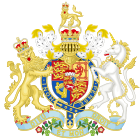| Act of Parliament | |
 | |
| Long title | An Act for the better Regulation of Publick Notaries in England. |
|---|---|
| Citation | 41 Geo. 3 (UK) c 79 |
| Territorial extent | England and Wales |
| Dates | |
| Royal assent | 27 June 1801 |
| Commencement | 27 June 1801 |
| Other legislation | |
| Amended by | |
Status: Partially repealed | |
| Text of the Public Notaries Act 1801 as in force today (including any amendments) within the United Kingdom, from legislation.gov.uk. | |
The Public Notaries Act 1801[1] was an Act of Parliament of the United Kingdom that banned people from acting as public notaries without lawful authority from a court.[2] From 1 August 1801, no person was permitted to be a public notary "unless such person shall have been duly sworn, admitted, and inrolled [sic]".[2] It did not, however, apply to public notaries who worked within religious organisations.[3] It required notaries to serve as an apprentice for seven years prior to appointment,[4] and provided detailed penalties for dishonesty with regard to appointments and qualifications for the position.[5] Several sections of the Act were eventually repealed or overridden by the Courts and Legal Services Act 1990, the Legal Services Act 2007 and the Statute Law Revision Act 1872.[5]
- ^ The citation of this Act by this short title was authorised by the Short Titles Act 1896, section 1 and the first schedule. Due to the repeal of those provisions it is now authorised by section 19(2) of the Interpretation Act 1978.
- ^ a b "Public Notaries Act 1801 - Section 1". legislation.gov.uk. 1801. Retrieved 5 October 2014.
- ^ "Public Notaries Act 1801 - Section 14". legislation.gov.uk. 1801. Retrieved 5 October 2014.
- ^ "Public Notaries Act 1801 - Section 2". legislation.gov.uk. 1801. Retrieved 5 October 2014.
- ^ a b "Public Notaries Act 1801 - Contents". legislation.gov.uk. 1801. Retrieved 5 October 2014.